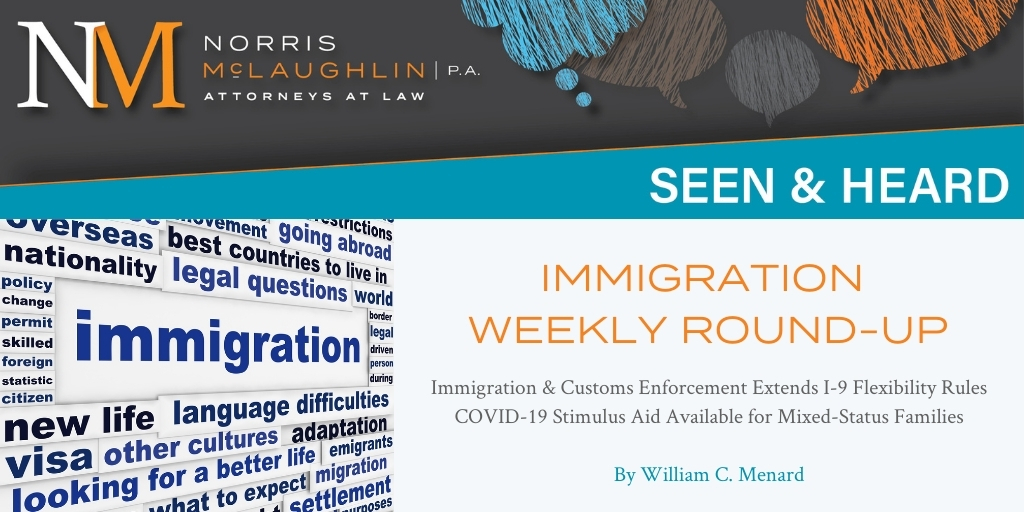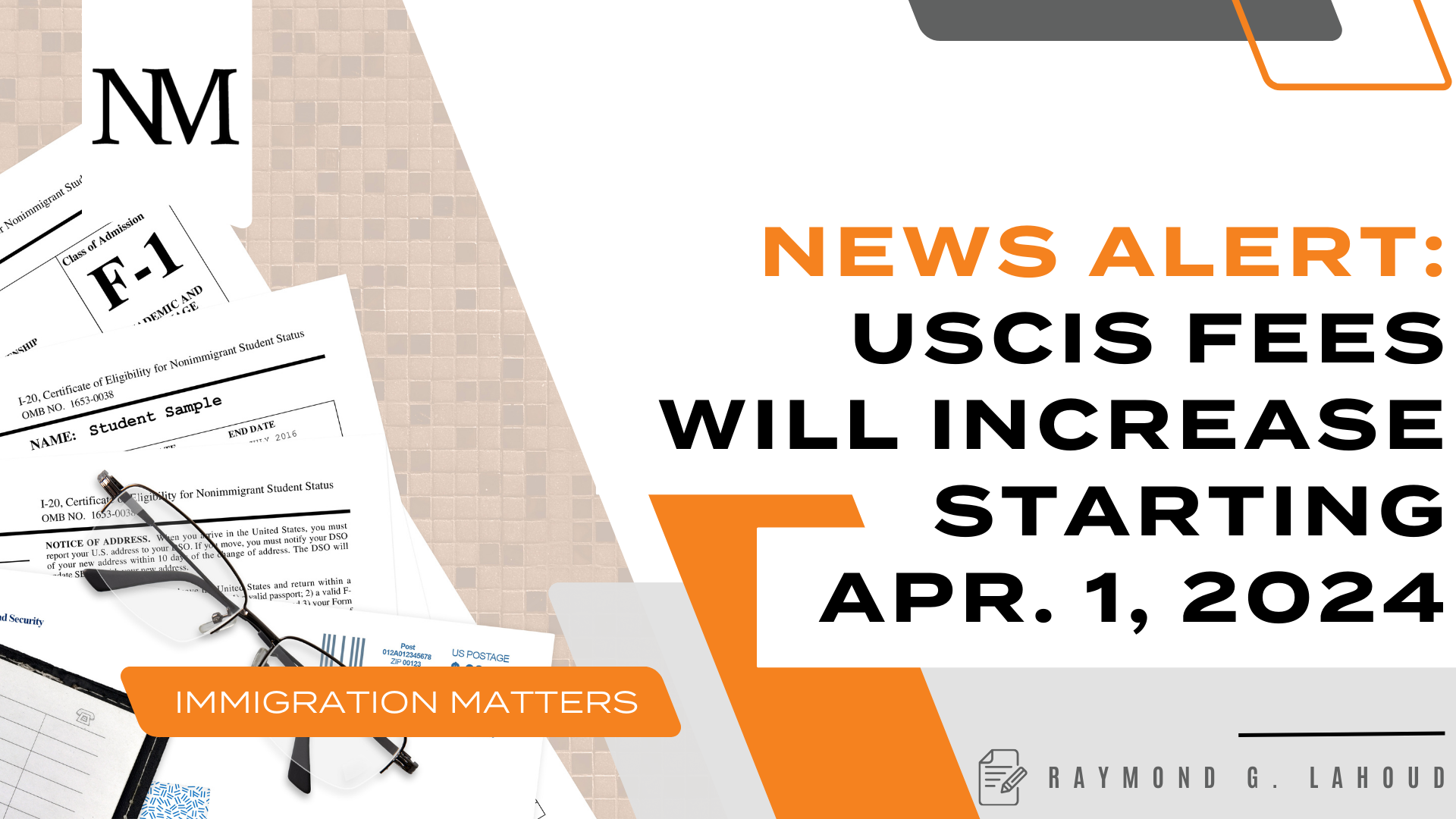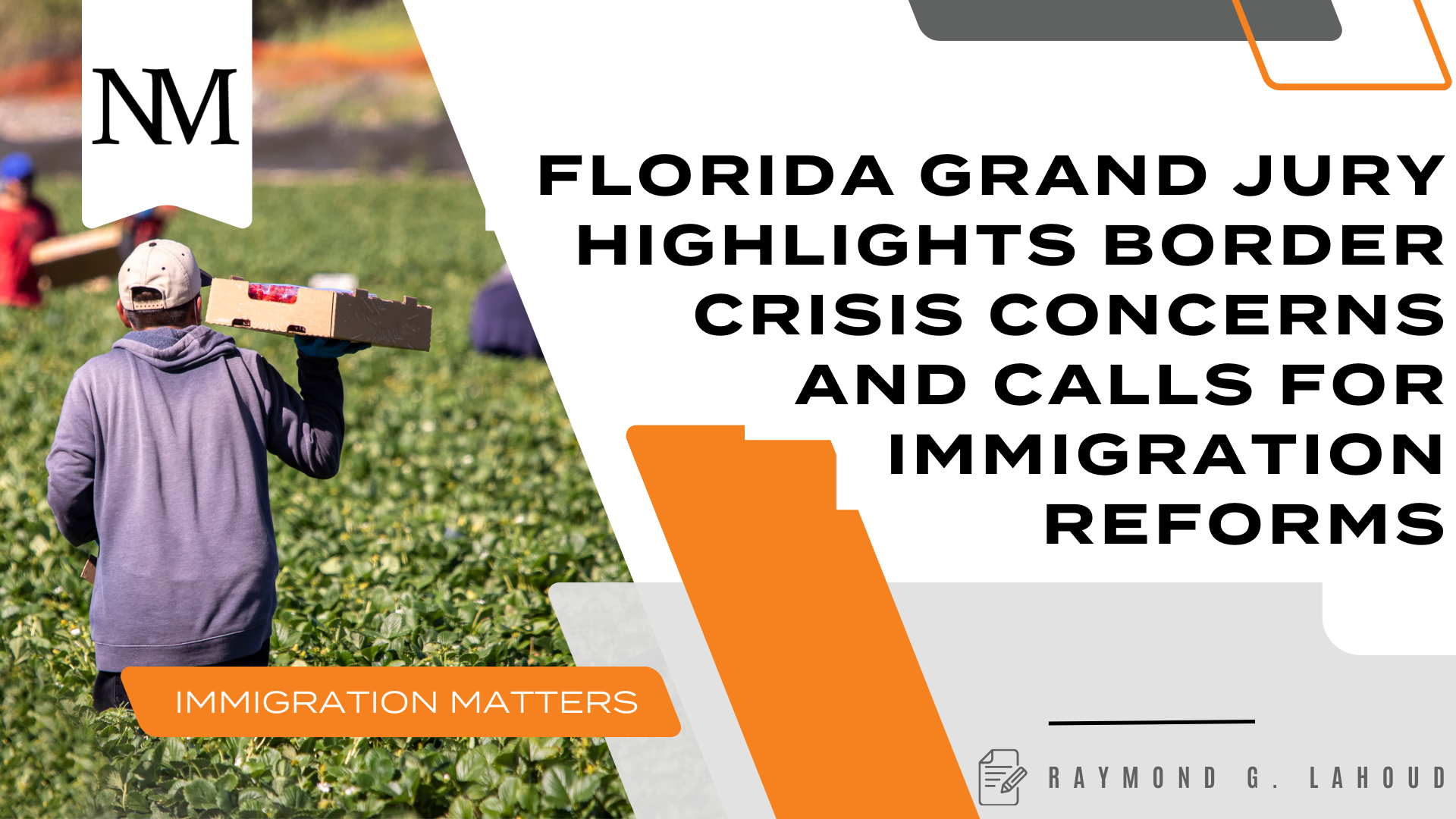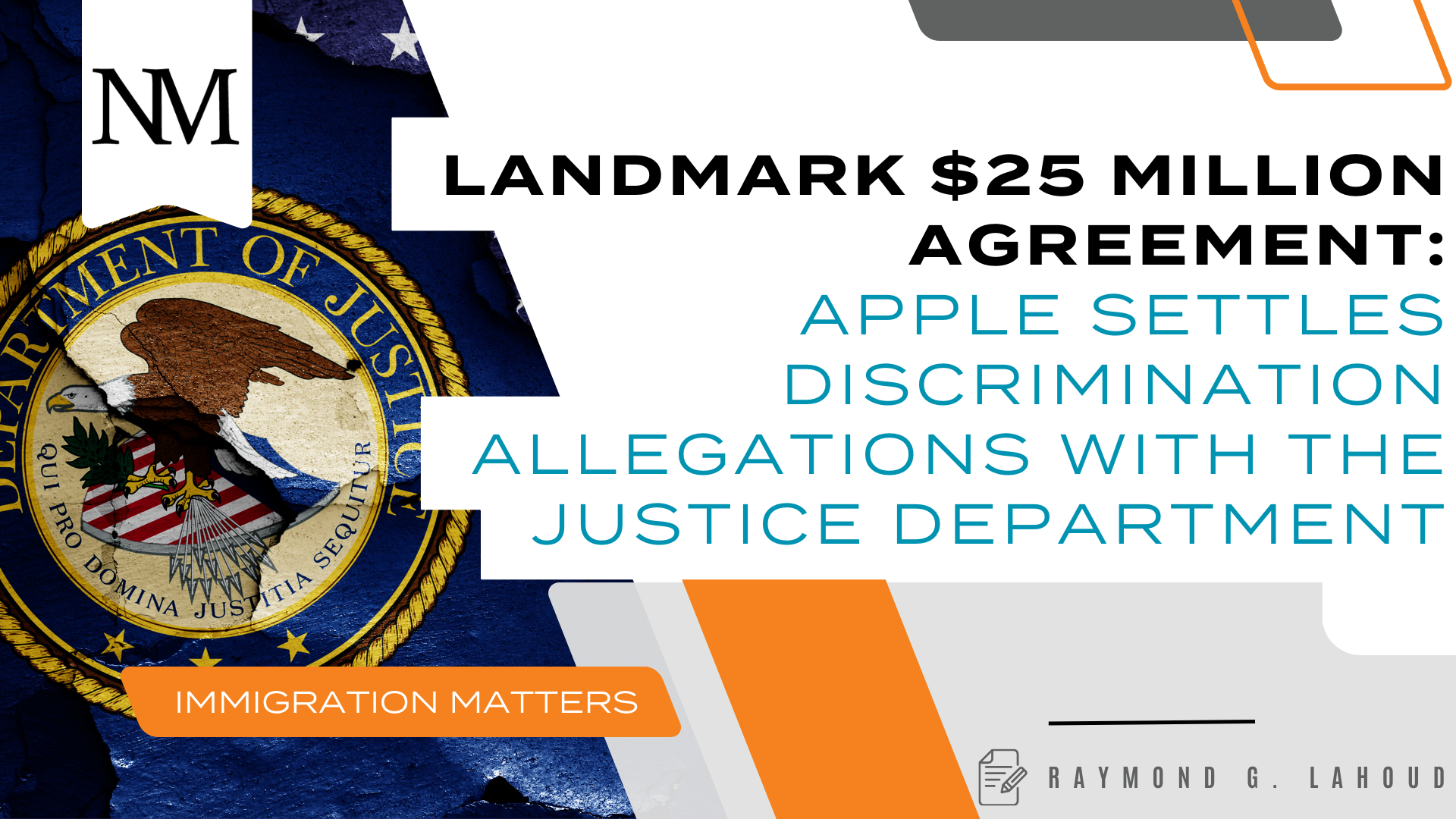Immigration Weekly Round-Up: I-9 Flexibility Rules Extended, Stimulus Aid for Mixed Immigration Status Households

Immigration & Customs Enforcement Extends I-9 Flexibility Rules
U.S. Immigration and Customs Enforcement (“ICE”) has announced that it will extend its flexibilities for compliance with I-9 regulations until at least January 31, 2021, due to the COVID-19 pandemic. The flexibilities in I-9 compliance were set to expire on December 31, 2020.
On March 19, 2020, ICE issued guidance permitting flexibility in several verification rules in order to allow businesses to safely comply with I-9 regulations during the pandemic. Generally, an employer or its representative must personally inspect the employee’s original documentation during the I-9 verification process. Due to concerns about such interactions during the COVID-19 pandemic, ICE announced that businesses operating remotely could instead conduct remote inspections of verification documentation. The guidance also allowed employers to accept expired documentation, such as driver’s licenses, that had been extended automatically by a state or federal agency. Finally, ICE guidance suspended the requirements that employees initiate contact with the Social Security Administration after being notified about a tentative non-confirmation on information contained in the Form I-9.
An announcement about whether any further extensions will be issued is expected next month. The Norris McLaughlin Immigration Law Blog will be closely following any updates.
COVID-19 Stimulus Aid Available for Mixed-Status Families
The new coronavirus relief bill, passed by Congress on December 21, 2020, and signed by President Trump over the weekend, will provide stimulus checks to mixed immigration status families, including those whose undocumented parents or spouses are present in the United States.
These benefits constitute a significant change from the original stimulus package issued earlier this year. The CARES Act, passed in March 2020, did not provide benefits to people with individual taxpayer-identification numbers, or “ITINs,” which are frequently issued to undocumented immigrants who pay taxes but are ineligible for a Social Security number. The CARES Act further denied benefits to spouses who filed taxes jointly with the undocumented individual, so that many American citizens did not receive emergency aid. The new stimulus bill eliminates that provision – although the new stimulus package still excludes aid for those with ITINs, their American citizen family members will now receive emergency benefits, providing benefits to mixed-status households. This will have a substantial impact on millions of individuals; according to the nonpartisan Migration Policy Institute, 3.7 million U.S. citizens and lawful immigrant children reside in mixed-status households, and 1.4 million U.S. citizens or lawful immigrants are married to undocumented immigrants.
If you have any questions about whether you are affected by this new COVID-19 stimulus aid or the continuation of I-9 flexibility rules, please feel free to contact me at wcmenard@norris-law.com or 484-544-0022. For other topics related to COVID-19, visit our Coronavirus Thought Leadership Connection.
The information contained in this post may not reflect the most current developments, as the subject matter is extremely fluid and constantly changing. Please continue to monitor this site for ongoing developments. Readers are also cautioned against taking any action based on information contained herein without first seeking advice from professional legal counsel.




